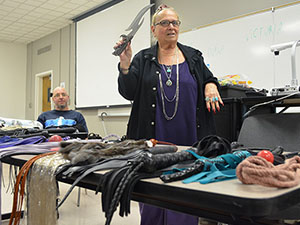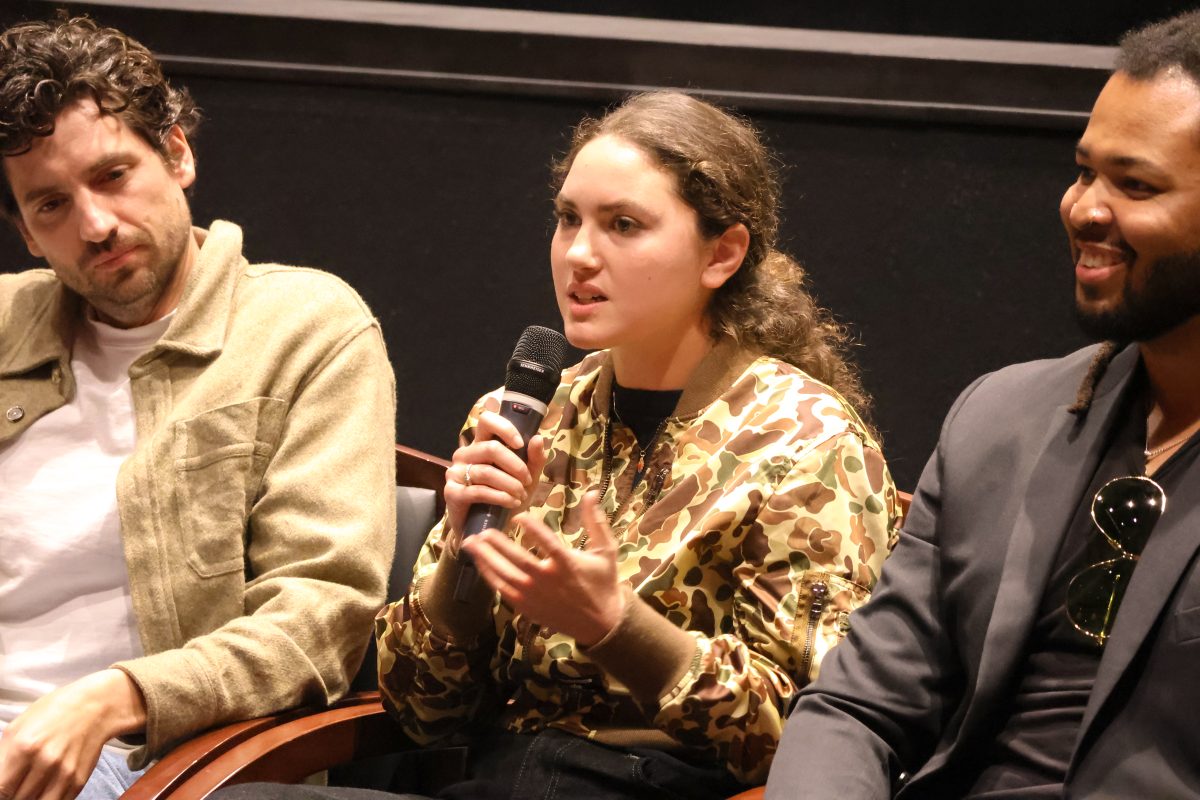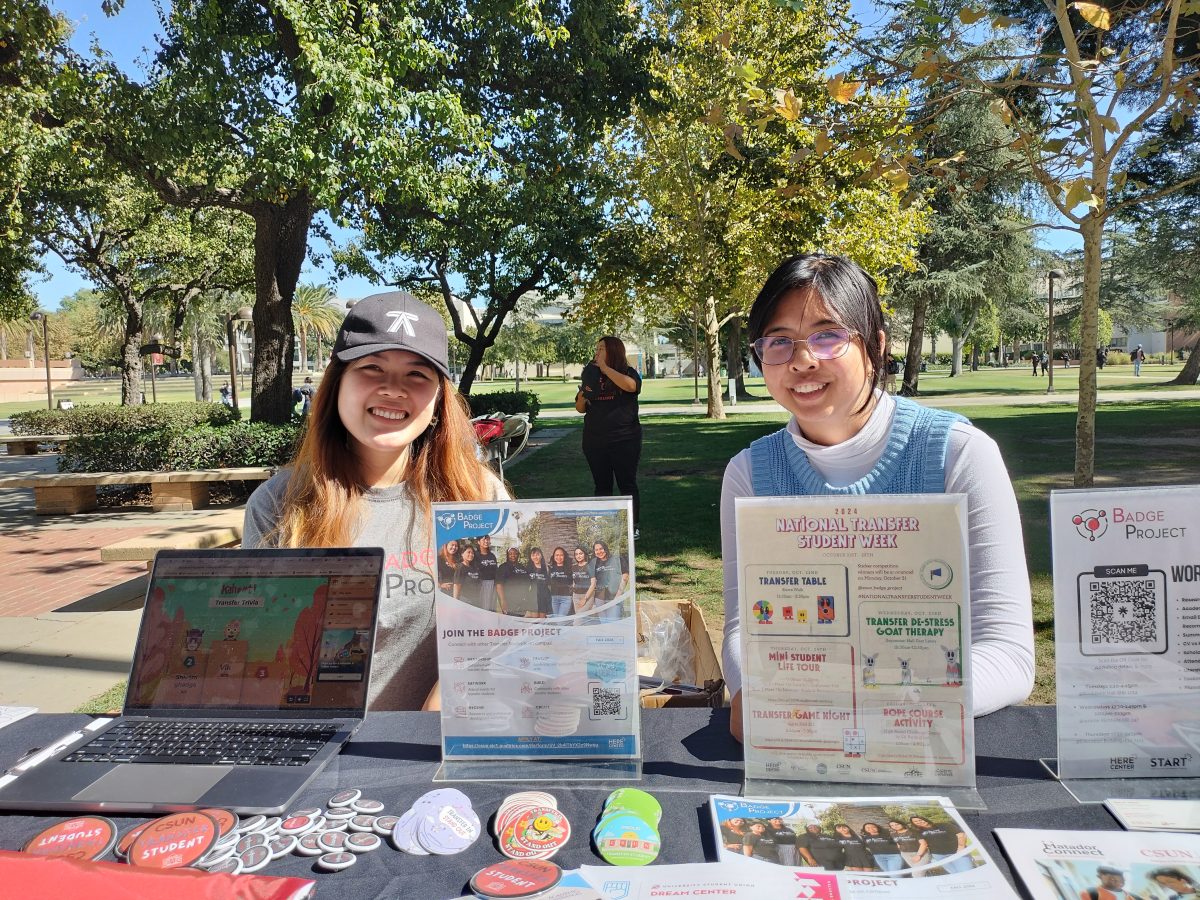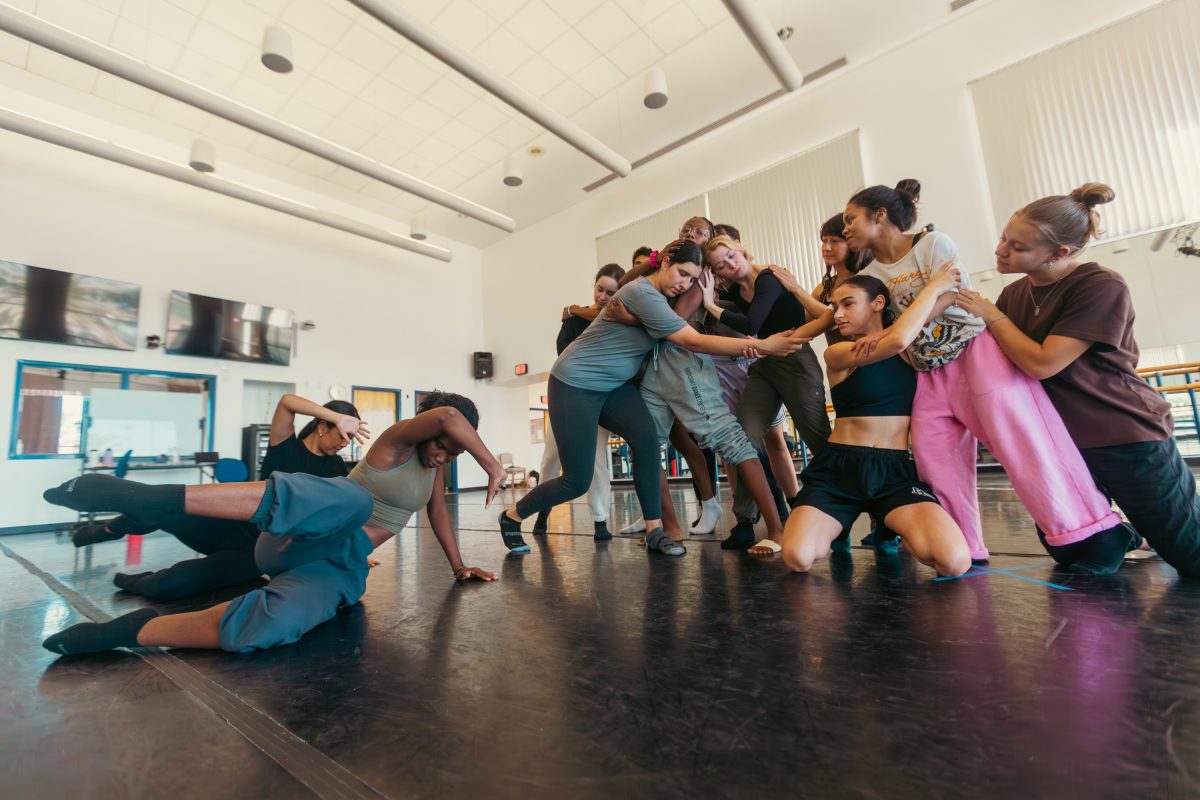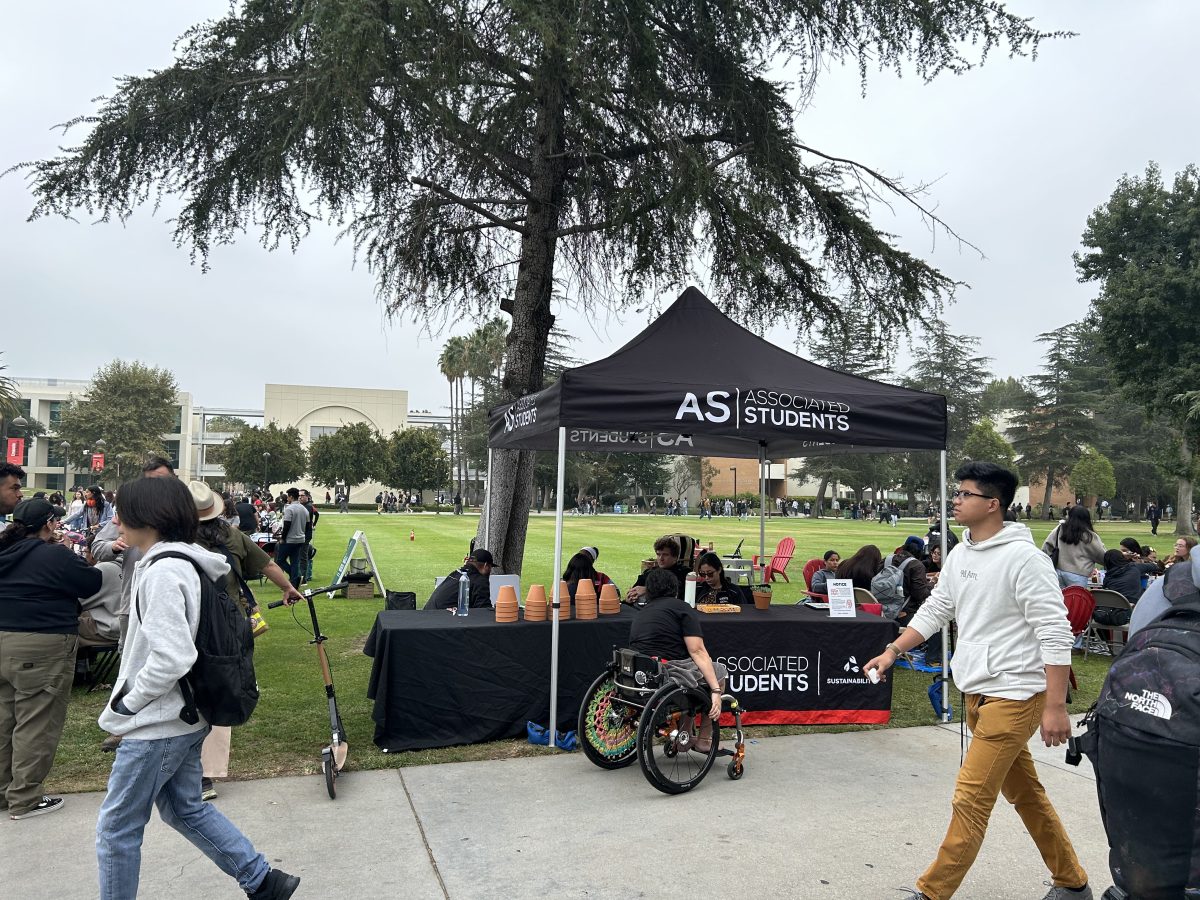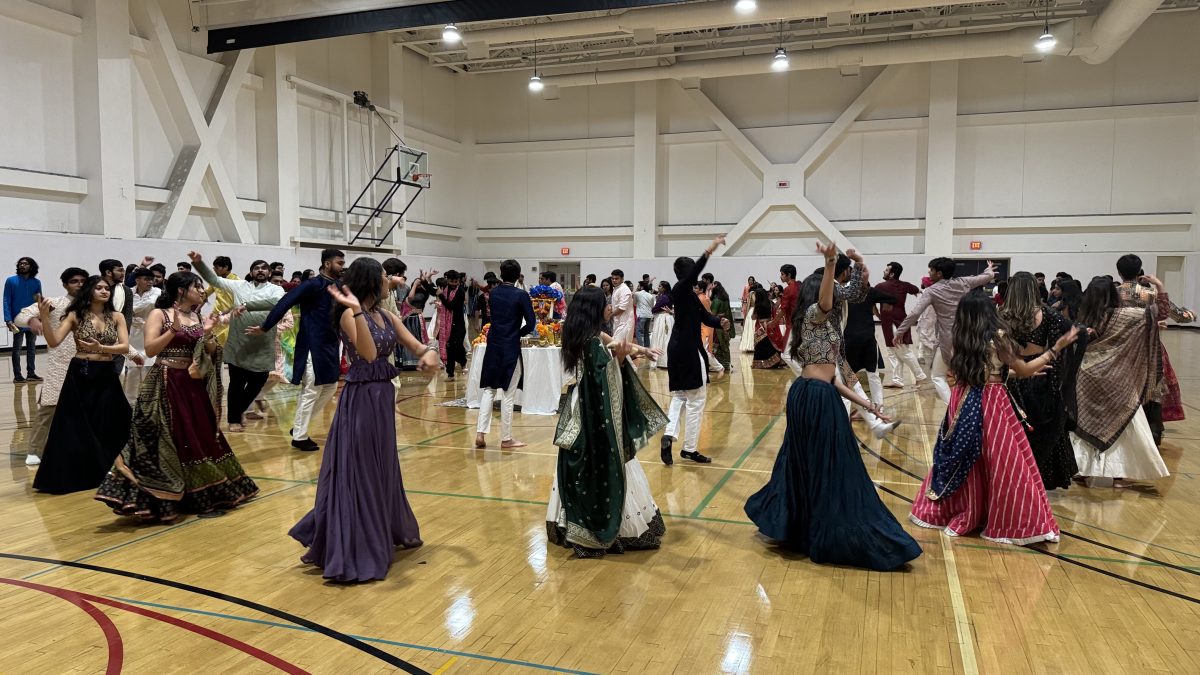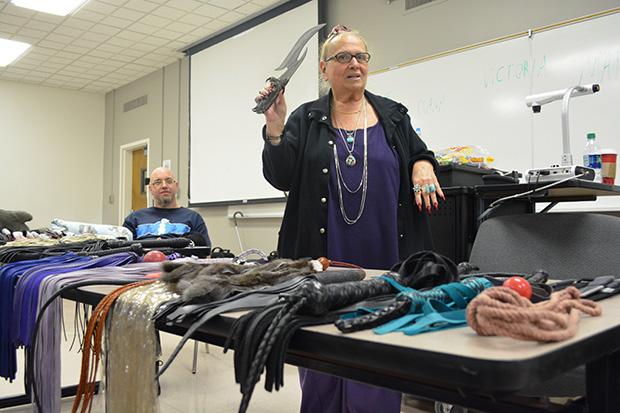
Bondage, discipline, domination, submission, sadism and masochism (BDSM) are occasionally practiced by 5-10 percent of Americans, according to a report by the Kinsey Institute.
“Human sexuality helps us to recognize what makes us feel good. It’s about learning about one’s sexuality,” said psychology professor Gidget Brogdon at an organized BDSM panel for her Human Sexuality class Friday. “This panel shows that there are a lot of different ways to explore sexuality.”
The panel consisted of four BDSM professionals ranging from a CSUN alumna, a former preacher, a retired school teacher and an adult entertainer. In the fall semester alone, the four panelists have participated in 20 panels at several universities and have presented BDSM panels at CSUN every semester for the past five years.
When the group of attendees were asked what BDSM was, words such as leather, chains, whips, pain and even plugging were yelled back at the panelists without hesitation.
The panel described that practitioners of BDSM have a unique vernacular, some emphasized more than others. Panelist Diana “Ms. Diana” Dee, president of Star Power Unlimited, refers to herself as a “dom.” A dom, short for dominant, is a person who exercises control during sex.
“One of the nice things about being a bitch is you have people doing things for you…I believe in hurting you not harming you, I’ve never sent anyone to the emergency room,” she said.
Dee added that she has no reservations when it comes to a sub’s (person that gives up control) sexual orientation, gender identity or background.
“Any warm bodies that want me to beat them are welcome,” Dee said.
Students had an opportunity to ask the panelists questions about the multitude of BDSM activities that had them intrigued. One student asked about blood sports, one of the many unconventional sex acts categorized under BDSM.
“Blood sports are any games that involve blood, piercings, cutting. Blood is part of energy and it’s primal. Blood is part of the interaction,” Dee said.
The panel also acknowledged that those who practice BDSM are not all alike and that like anything else, one’s sexual desires are based on preference. For example, the panel emphasized the fact that not everyone who practices BDSM enjoys blood sports, leather or bondage.
“I think the sophistication and intelligence that each individual articulated and conveyed was extremely professional and beneficial for the entire presentation,” said Adam West, 25, a psychology major.
Panelist Count Boogie, a musical comedian and massage therapist, thought that the class was prepared and had a lot of great questions.
“They were ready so we could move past the trivial and get into the application and philosophy, and that’s always fun,” Boogie said, as he broke the sound barrier with his dragon tongue crack whip.
Raquel Cockrell, 26, a psychology major said, “I feel like I know a lot about the presentation but the question and answer (segment) is really driving it home. I think (this presentation) opens up (students’) minds and makes them more aware.”
In the The Journal of Sexual Medicine’s May 2013 issue titled “Psychological Characteristics of BDSM Practitioners,” BDSM is described as a sexual practice characterized by suppression, physical restriction, practicing role playing games, power exchange and sometimes even the administration of pain.
According to the article, although most people think of BDSM as a form of erotic behavior, most BDSM practitioners participate in BDSM activities for sensory pleasure and not so much for erotic pleasure. BDSM is often misconceived to be “all about pain,” whereas it is more about games and play characterized by power and humiliation, according to the article.
The panel shared a tenacity and esteem for all things BDSM.
“I like to think we’re sex enthusiasts,” said Matthew Lynch, panelist and presenter for the Center for Positive Sexuality.
Lynch showed a brief slideshow about the common misconceptions of people in the BDSM community. Lynch said that the media often portrays practitioners of BDSM as mentally ill, victims of child abuse, sex addicts, experiencing low self-esteem, wanting to harm themselves or sociopaths.
According to Lynch, the majority of people who live a BDSM lifestyle practice it safely, sanely and consensually. Adding that aftercare is an important and intimate time spent between partners after play (negotiated, consensual activities) to recuperate, reconnect and check in.
“We encourage people who want to learn to get mentored. Be aware that everything has consequences. Do things safely and consensually,” Dee said.
The panelists revealed the variety of sex toys and tools that people who practice BDSM sometimes use. Floggers, knives, rope, vibrators and makeshift spanking tools were among the items shown.
Lynch said, “Bondage is like a hug you get to wear,” he pointed to his head and added, “(BDSM) is a connection. It’s not just about (the toys) on the table but it’s what is between your ears.”
After the panelists finished their presentation, Brogdon voiced how important she felt the presentation was for her students.
“I hope that students understand that these things that we consider outside the norm are not abnormal. I believe that awareness leads to acceptance and that’s in all parts of our life,” Brogdon said.
